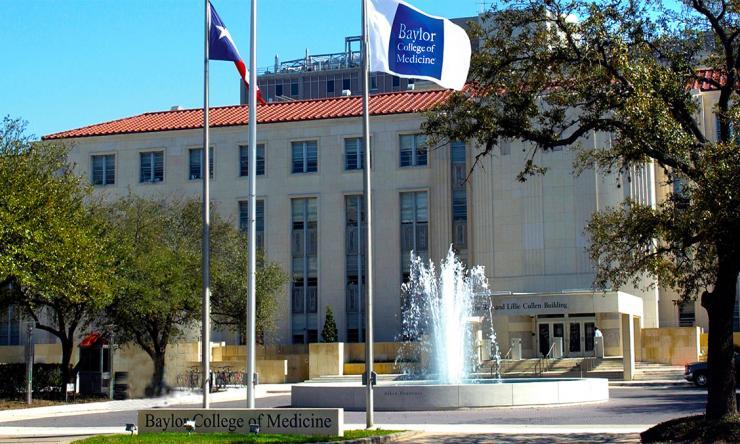FDA IND Clearance for STXBP1-developmental and epileptic encephalopathy therapy
Researchers at Baylor College of Medicine and the Jan and Dan Duncan Neurological Research Institute at Texas Children’s Hospital will participate in Capsida Biotherapeutics' multicenter clinical trial to study an investigational therapy for the treatment of a devastating childhood epilepsy condition, called STXBP1-developmental and epileptic encephalopathy (DEE).
The U.S. Food and Drug Administration has cleared the Investigational New Drug (IND) application for CAP-002, Capsida Biotherapeutics’ first-in-class, intravenously (IV) administered gene therapy for STXBP1-DEE. Texas Children’s Hospital will be one of the clinical trial sites. CAP-002 is the first engineered IV-delivered gene therapy that crosses the blood-brain-barrier and detargets the liver to enter human clinical trials.
STXBP1-DEE is estimated to affect up to one in 26,000 births globally, which is approximately 5,000 pediatric patients in the U.S. and Europe. The STXBP1 protein is present in every neuron and is essential for normal neurotransmission. A change in the STXBP1 gene is associated with early-onset seizures, severe developmental delay and intellectual disability, motor abnormalities, and a risk of sudden unexpected death in epilepsy (SUDEP). There are no approved treatments.
Discoveries made by Dr. Mingshan Xue, Caroline DeLuca endowed scholar and principal investigator at Texas Children’s Duncan NRI, Cain Foundation Laboratories, and associate professor at Baylor, have advanced our understanding of STXBP1-DEE and supported the preclinical development of CAP-002. Dr. Xue developed a proprietary mouse model that replicates STXBP1-related disorder and demonstrated proof-of-concept that an adeno-associated virus (AAV) gene therapy approach could reverse the disease. To achieve the level of widespread STXBP1 restoration needed in humans, Xue entered into a collaboration with Capsida. Capsida’s proprietary AAV engineering platform enabled identification of an engineered capsid that, when paired with STXBP1 therapeutic cargo, could achieve widespread expression of STXBP1 protein in the brain of non-human primates (NHPs). Capsida’s engineered capsid is significantly detargeted from off-target organs, such as the liver and dorsal root ganglia (DRG), following intravenous administration in NHPs.
“The goal of my research was always to develop a therapy that not only addresses the symptoms of STXBP1-related disorder, but tackles the root causes of this disease,” said Xue. “We are hopeful that CAP-002 may have potential to meaningfully improve outcomes in patients with this disease.”
Gene therapy for STXBP1-DEE had not been previously possible because wild-type adeno-associated viruses (AAVs), such as AAV9, cannot achieve the level of widespread neuronal transduction required to modify the disease. In NHP studies to date, CAP-002 has established transduction of more than 70% of neurons across critical brain areas, while simultaneously detargeting the liver and DRGs. This brain-wide expression of STXBP1 has the potential to correct seizures, developmental disabilities, and motor abnormalities, after a single intravenous infusion. The NHP Good Laboratory Practice (GLP) toxicology study has shown a well-tolerated safety profile with no adverse histopathology. CAP-002 received Orphan Drug Designation (ODD) from the FDA in October 2024.
Capsida is now initiating study start-up activities for the SYNRGY Phase 1/2a clinical trial, with the first patient expected to be dosed in the third quarter of this year. Dr. Hsiao-Tuan Chao, principal investigator at Texas Children’s Duncan NRI, Cain Foundation Laboratories, and McNair Scholar and assistant professor of Pediatrics, Molecular and Human Genetics, and Neuroscience at Baylor, will be the principal investigator leading the trial at Texas Children’s Hospital.
“STXBP1-related disorders present devastating challenges in communication, development, motor function and seizures. We are in dire need of targeted therapies that can improve the lives and functioning of our children and families,” said Charlene Son Rigby, STXBP1 Foundation President and Cofounder.
“This investigational therapy has the potential to fully correct seizures and meaningfully reverse neurological symptoms of STXBP1-related disorders, which would improve the quality of life for individuals with this condition,” said Chao. “We are excited to help lead a clinical trial at Texas Children’s Hospital and take our discoveries full circle from the laboratory and into clinical development.”
“This investigational new gene therapy is a truly outstanding achievement and is a beautiful example of our mission at the Duncan NRI,” said Dr. Huda Zoghbi, founding director of the Texas Children’s Duncan NRI, distinguished service professor at Baylor, and investigator at the Howard Hughes Medical Institute. “Dr. Xue’s discoveries have charted new paths forward for therapeutic development for STXBP1-related disorders, and in the coming years we hope this will help change outcomes for the children and adults affected by this disorder.”
“The FDA clearance of the CAP-002 IND is a significant milestone for Capsida, the STXBP1 community, and the field of genetic medicine,” said Dr. Swati Tole, Chief Medical Officer of Capsida. “We look forward to initiating the SYNRGY clinical trial and dosing patients starting in the third quarter of this year with this potential first targeted therapy for STXBP1-DEE.”
With questions regarding the upcoming multicenter SYNRGY clinical trial at Texas Children’s Hospital, please reach out to Dr. Hsiao-Tuan Chao and her research team at chao-lab@bcm.edu.










